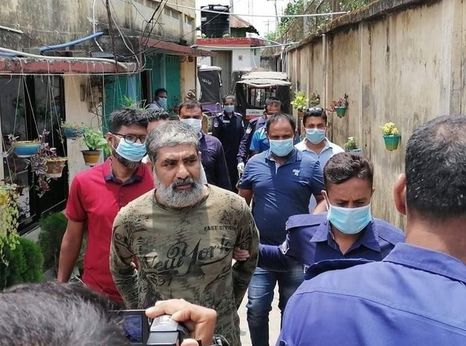Editor faces detention after disappearance

Shafiqul Islam Kajol, 50, a Bangladeshi photographer and editor of a daily Dainik Pokkhokal, faces risk of an indefinite pre-trial detention, after possibly being a victim of enforced disappearance since 10 March 2020.
53 days after his disappearance, on 3 May 2020, the Bangladesh police said he was found near the border 100 yards inside Bangladesh. They filed a case against him under the Bangladesh Passport Order, 1973 for “trespassing” into his own country from neighbouring India without passport.
A magistrate court in Jashore granted him bail after he refused to plead guilty in the case, but soon after the police filed another case under section 54 of the Bangladesh Code of Criminal Procedure, 1898, which empowers the police to detain a person without an arrest warrant, if the person is accused in a cognizable offence under the law of the land.
A day prior to his disappearance, a lawmaker from Bangladesh’s ruling Awami League party filed a case against him and 31 others under the draconian Digital Security Act (DSA) under sections 25, 26, 29 and 31 for publishing “false, offensive, illegally obtained and defamatory” content on Facebook that “could deteriorate law and order”. Another member of the ruling party filed a second case against him under sections 25, 26 and 29 of the Act, three hours after he was last seen leaving his office at 6:51PM on 10 March 2020. It now appears that a third case under the Act was filed against him the next day. If convicted in the charges he is accused of, he could face up to 7 years in prison.
In a video released by Amnesty International on 21 March 2020, CCTV footage shows at least three unidentified men approaching the journalist’s motorbike parked outside his office and appearing to tamper with it, moments before he is seen driving away with it.
His disappearance and the multiple cases filed against him follows a flurry of critical posts he made on Facebook about involvement of members of the ruling Awami League party in a sex trafficking ring being operated out of a five-star hotel in Dhaka.
In November 2018, Amnesty International released a report titled “Muzzling Dissent Online”, which outlined sections within the DSA which are inconsistent with international human rights law and standards, including the International Covenant on Civil and Political Rights, to which Bangladesh is a state party and called on the Bangladesh government to promptly amend the law.
Under international human rights law, the mere fact that forms of expression are considered to be insulting to a public figure is not sufficient to justify the imposition of penalties. In particular, the UN Human Rights Committee has called on states to consider the decriminalization of defamation, and instead treat it as a matter of civil litigation.
At least 14 offences under the DSA, including sections 26 and 31 that have been used against Shafiqul Islam Kajol, are non-bailable. The UN Human Rights Committee observed that harassment including arrest, trial, detention and imprisonment for reasons of an opinion a person may hold, constitutes a violation of article 19 of ICCPR.
The UN High Commissioner for Human Rights has called on Bangladesh to “urgently revise the Digital Security Act, to ensure that it is in line with international human rights law and that it provides for checks and balances against arbitrary arrest, detention, and other undue restrictions of the rights of individuals to the legitimate exercise of their freedom of expression and opinion”.
More than 1,000 cases have been filed under the DSA in Bangladesh since it was put into implementation in October 2018.